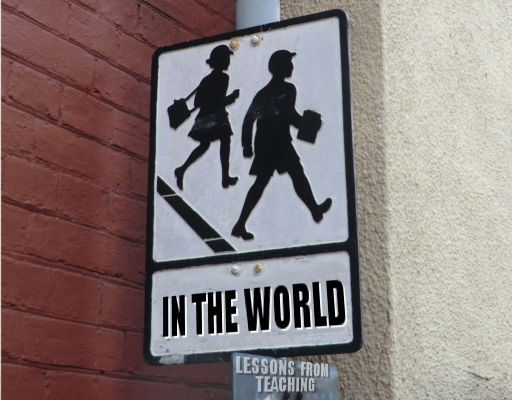Issues of sexuality are notoriously controversial, and shirted around uncomfortably; especially where homosexuality is concerned. This goes beyond a “no sex, we’re British” attitude. Discussions turn into debates and degenerate into arguments far too easily, and cause rifts that have no reason to be there. Some practices, sadly, reinforce these rifts and lead us to a discourse that is far, far from Christian love. So here are a few ways in which we’ve been tackling homosexuality wrongly:

1. Use arcane language that you wouldn’t hear anywhere else. In Issues on human sexuality, for instance, the CofE used in lieu of “homosexual” or “gay”, the word “homophile”. I understand that they wanted to express that being homosexual involves more than just the hanky panky. But in doing so, they made of Issues in human sexuality a document which appeared to have been created without any personal knowledge of homosexuals, and without any willingness to acquire any. It is a shame, because it means that this otherwise well balanced document reached far fewer people than it might have.
So steer clear of your own neologisms, even when you think you’re simply modelling Paul. Avoid archaic words too – “inverted” is likely to make you look just as out of touch.
2. Create distinctions that you wouldn’t be ready to apply to your own life. Far too often, people state that “being gay is fine, but acting on it is a sin”. In doing so, we are simply refusing to think about the theological aspects of homosexuality, while still trying to appear loving, accepting and liberal – basically sheltering ourselves from the “homophobia” label. But this soundbitey approach (a) appears to fly in the face of Matthew’s Gospel; and (b) fails to consider homosexuals as people. To all who use that sentence as an easy get-away, I say: hypocrites. Would you be willing to hear that “being attracted to the other sex is fine” just to be told within the same breath that you can’t touch this ever?
Now this does not necessarily mean that the theological stance that gay people are called to celibacy is wrong. But if we want to hold on to that viewpoint, we cannot dismiss sexuality as an easy thing to ignore. No, we should at the very least focus positively on celibacy and acknowledge that it is a tough calling, as Paul himself stated.
3. Pretend that it’s easy. This goes hand in hand with the previous point, but is addressed this time to both sides of the debate. It isn’t easy to completely give up one’s sexuality. It isn’t easy to follow a calling to celibacy. It isn’t a matter of simply “turning it off“. Yet equally, liberals shouldn’t pretend it’s easy to re-assess a complete worldview in which same-sex attraction was considered a sin. Try to put yourself in the place of someone who suffers from same-sex attraction (and I’m not using that word lightly): believing it to be a sin, you’ve gone through countless sacrifices to be as holy as you could manage, failing every now and then and feeling guilty for it. And then someone comes along and tells you it’s all fine and that you should just embrace “who you are” and that all your previous efforts were not just pointless, they were also stupid. Now that would hurt. Adjusting to this new worldview would just put you face to face with that pointless suffering.
So don’t just uphold an argument or a position. Uphold relationships.
4. Imagine that only one side of the debate is entitled to pastoral care. Yes, the conservative side of the debate has played the part of the oppressor on the LGBT minority, with some extreme cases: in some countries, homosexuality carries the death penalty. It is very clear who the victims are here. So we may not feel that they are deserving of the pastoral care which the oppressed need. But since when do we, as Christians, give care and support on the basis of who deserves it the most? Since when are we withholding love and care from others?
Now we may not see that conservatives need pastoral care. But these are people who live in a world that is changing far too rapidly around them. They may have built a large chunk of their life, say, on the conception that marriage is a sacred union between a man and a woman – only to have someone in authority tell them that, actually, it isn’t. I’m not talking about protesters (whose worldview on this topic is fundamentally unchangeable), but about those who see a large part of their life take on – for them too! – a new meaning. We should guide them and support them in their adjustment to societal change, just as much as we should guide and support gay people in their struggle with a world that doesn’t quite accept them fully.
5. Hide behind the “all sin’s the same” or “we are all sinners” soundbite. For starters, this is a dangerously misleading theological shortcut. Yet beyond that, it does not reflect the church’s treatment of sin. Sexual sin is somehow more frowned upon – probably because it is easier to think we are not guilty of it, and easier to focus on than it is to focus on our own handling of money. Finally, pretending that all sin’s the same is grossly misunderstanding the nature of sexuality. Sexuality is perceived as part of one’s identity, whether it is accepted or rejected. It’s not the same as, say, being envious of your neighbour’s car, or even wife. Rejecting the latter as sin is easy, because it isn’t tied to who you are – rejecting the former, on the other hand, is hard.
Now don’t get me wrong: just because it’d be hard to reject one’s sexuality, doesn’t mean that it should be left alone. If (and that’s a big if) you see homosexuality as a sin, then it is serious and it should be addressed. But don’t let’s belittle the struggles associated with sexuality and identity by associating them with petty thievery. That’s just plain disrespectful.
6. Stay on the fence, even if only pending deliberations. It is highly laudable for us as a church takes due consideration of issues of sexuality and to not rush to a conclusion. However, in the meantime, there are a lot of people in need of guidance who are left to constantly reconsider how they ought to live out their lives. We are all in a position of authority to someone, and we owe our honesty to them.
And so to me, staying on the fence includes hiding behind the soundbites listed at numbers 2 and 5. Because when you’re using those soundbites, you’re not giving the issue of sexuality any real consideration; and you’ll be caught short when someone tells you “what about me?”.
While sitting on the fence is, then, not an option, it doesn’t mean you should be entrenched into one side of the debate. I would advocate, for instance, to have a preliminary view on the issue but to be open to explore it further if and when the need arises. It doesn’t mean that view should be aired or shouted at the first occasion – you may have noticed that I haven’t shared my own (though I’d be ready to do so, in private). But I have good reason for that: I believe that this post has something to say to both sides of the debate, and I wouldn’t want to be dismissed because I’m a partisan for the opposite cause. Which brings me to the final point:
7. Dismiss all other stances as heretical and/or bigoted. This includes recourse to the phrase “The Bible says so”, which tends more to shut down a conversation than bring it life. It includes the phrase “ah, but you go to that conservative church, of course you’re going to say that.” It includes outraged “You can’t say that! That’s homophobic!”. If we stick to these arguments, we’re helping no one but ourselves, as we are ego-trippingly asserting our own brilliance.
Dialogue is where it’s at. Understanding the other side of the debate. In doing so, we aren’t discarding our own views – and I’m not advocating that we start doubting the truths to which we hold. But if we are to love our brothers in disagreement, we cannot look down on their views as idiotic – merely misguided ;-)
Ultimately, then, what we should do is both easy to summarise and incredibly hard to do. We should remember at every single point that, behind the theology, behind the debate, are people whose lives could be shaped by our views. We should love these people, and extend a hand of friendship, fellowship and swallow our own pride – whether it is in our theology or in our sexuality. But that is a tough call. And so it cannot be met without prayerful consideration. Pray pray pray pray pray. And then pray again. For wisdom and for love and for peace. Not for being right.





